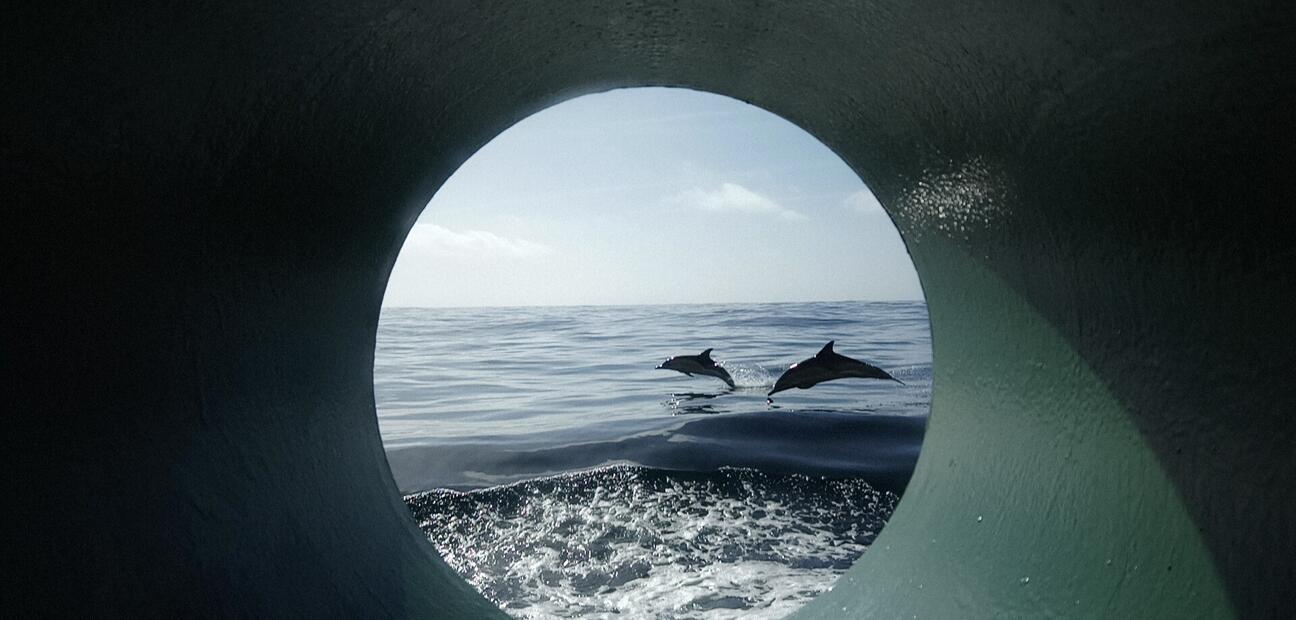
Bycatch is the accidental capture of non-target species in commercial fisheries, and the issue spans a wide range of areas including fisheries management, the health of protected species populations, trophic/foodweb impacts, and cumulative risks. In addition, the estimation of bycatch of endangered, threatened and protected, species (ETP) in commercial fisheries and its sustainability assessment is an important consideration in the implementation of the Common Fisheries Policy, the Habitats and Bird’s directives, and the EU’s Marine Strategy Framework Directive (MSFD).
The Biodiversity project will develop and implement a programme aimed at sampling stranded cetaceans around the coasts of Ireland. The project will evaluate mortality due to fisheries bycatch and other pressures using validated necropsy examinations which will be carried out on these stranded cetaceans. The proposed programme will identify causes of death for top predators, cetacean species, and build upon the available dataset allowing potential trends to be identified. By tracking cetacean mortality patterns, we can begin to understand ecosystem health and assess shifts in predator-prey relationships. To facilitate the investigation of a variety of parameters including persistent toxic and bio-accumulative pollutants, a wide range of samples of animal tissue, bone and other biological material will be taken from the necropsied animals as well as from key species of stranded animals.
This programme will improve our understanding of foodweb and trophic impacts, as well as provide a time-series of pressure indicators (ex. Bycatch, Trends and Status of PCBs) which are needed to help interpret changes in population status, and to successfully implement a programme of measures to achieve GES under the MSFD. This programme will support Ireland’s International obligations to monitor, assess, or mitigate the impacts of bycatch of ETP species, and considers ETP species, including common dolphin, harbour porpoise, considered at high-risk of bycatch.
As top predators, marine mammals are considered indicators to measure progress towards the achievement of Good Environmental Status (GES) under the MSFD in particular. Time-series of pressure indicators are needed to help interpret changes in population status, and to successfully implement a programme of measures to achieve GES.
- Support the reduction of bycatch of ETP species in Irish waters through scientific research to increase knowledge.
- Scientific reporting on the evidence, for fisheries bycatch in the population of stranded cetaceans around the Irish coast.
- The collection of data to support reporting requirements for Ireland under the Common Fisheries Policy, Habitats Directive, Bird Directive, and Marine Strategy Framework Directive, and improved fisheries advice to DAFM in relation to Natura compliance.
- Provide support for DAFM’s sustainable fisheries activities and improve the scientific advice.
- The project will seek to deliver cross government needs, with an emphasis on supporting sustainable fisheries while protecting and restoring marine biodiversity and ecosystems to achieve good environmental status. It will inform EC Directive reporting and policy compliance (MSFD, Habitats), while contributing to national and international regulatory and convention specific obligations (e.g. EMFAF, CFP, OSPAR, ICES) and plans (HOOW and Climate Action).
- Contribution of key tissue samples of relevance in assessing population structure and ecology among the species by-caught in monitored metiers.
- Data will be available for inclusion in any future assessments for the MSFD mammal pollutant indicator that is currently being developed by the OSPAR marine mammal expert group and for incorporation in MSFD D1 and D8 assessments.
- Contribute to Ireland’s obligations under MSFD by increasing our understanding of high-risk areas and seasons for bycatch (MSFD D1), and for monitoring pollutants (MSFD D8)
- contribute data to OSPAR work estimating bycatch (OSPAR M6) and supports OSPAR spatial and temporal and effects-based assessments in of persistent and emerging contaminants in the marine environment.
- contribute to strandings databases held by ICES WGMME and others ASCOBANS/IWC.
- contribute to ICES WGBYC data collation on strandings.
The design of the Biodiversity Program maximises the return for sampling and links to the various Directives and data requirements:
- Data on bycatch of cetacean species.
- Integration of results with data collection scheme and dissemination of data to end user including DAFM, DCHG, ICES and the Commission.
- Report summarising the results from the Biodiversity Bycatch programme.
- Inclusion of data in related data calls and advisory requests through ICES, European commission and others as required.
- Contribute to conservation and management advice, via the generation and evaluation of information on pollutant levels and other stressors (e.g., fisheries bycatch or climate impacts) to support evaluation of individual and/or cumulative impacts on cetacean species.
- Results of post mortem examinations of subset of stranded cetaceans from the national strandings scheme, stratified by geographic region and species presented in project reports.
- Collection of scientific specimen of stranded animals used for post mortem examination to be disseminated for further scientific studies.
- High quality trend dataset on legacy and emerging Persistent Organic Pollutants and other pollutant concentrations in small cetaceans from Irish waters reported to MI contaminants database
- Assessment of the pollutant burdens and associated risks to small cetaceans in Irish waters
- Recommendations for future monitoring and assessment
Contact: Ailbhe.Kavanagh@Marine.ie and Brendan.McHugh@Marine.ie